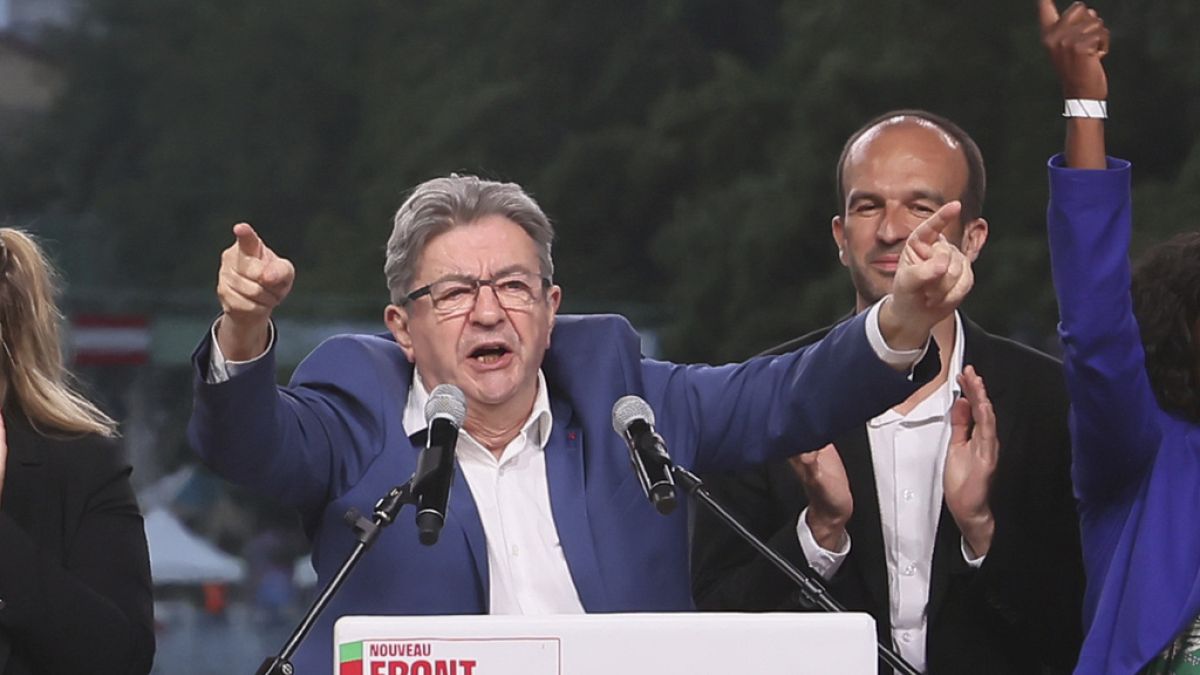France Unbowed (LFI) leaders have accused President Emmanuel Macron of an “institutional coup against democracy” for not appointing a left-wing prime minister. As the political truce during the Paris Olympics ends, pressure mounts on Macron to appoint a prime minister from the left-wing New Popular Front (NFP) coalition. The NFP, which won the most seats in the recent elections, insists that the future prime minister should come from its ranks and nominated Lucie Castets for the position. Macron has agreed to meet with political leaders to resolve the deadlock, but has ruled out Castets as the prime minister, leading to the threat of impeachment by LFI.
The threat of impeachment by LFI is unlikely to succeed due to division within the NFP coalition. The Socialist Party, a part of the NFP, has rejected the impeachment procedure as it is only supported by France Unbowed leaders. Impeachment would require two-thirds support in both the National Assembly and the Senate, making it difficult to achieve. Several potential candidates for prime minister have emerged, including Michel Barnier, Xavier Bertrand, and Bernard Cazeneuve, but the decision lies with Macron. As tensions escalate, the political future of France remains uncertain, with the possibility of snap parliamentary elections looming on the horizon.
As the political standoff continues, Macron faces increasing pressure from different political factions vying for power and influence in the government. The refusal to appoint a left-wing prime minister has sparked accusations of undemocratic behavior and raised concerns about the stability of the current government. The upcoming meeting between Macron and political leaders is crucial in determining the resolution of the deadlock and averting a potential constitutional crisis.
The power struggle between Macron and the NFP coalition highlights the challenges of governance in France’s fragmented political landscape. The question of who will lead the government and how decisions will be made in the future remains unresolved, creating uncertainty and instability in the country’s political environment. The outcome of the current crisis will have far-reaching implications for the future of French politics and the balance of power between different political parties.
In the midst of the political turmoil, the role of the public and civil society in shaping the country’s future direction becomes vital. The demands for transparency, accountability, and respect for democratic principles are central to the ongoing debate surrounding Macron’s leadership and the appointment of a prime minister. The outcome of the negotiations and the potential resolution of the current deadlock will shape the political landscape in France for years to come and determine the future course of the country’s governance.
In conclusion, the standoff between President Emmanuel Macron and the NFP coalition underscores the challenges of governance in France’s complex political landscape. The threat of impeachment by LFI, the refusal to appoint a left-wing prime minister, and the upcoming negotiations between political leaders all point to a pivotal moment in French politics. The decisions made in the coming days will have lasting consequences for the country’s political future and will shape the dynamics of power and influence in the government. As France navigates this critical juncture, the role of various political actors, civil society, and the public in shaping the country’s democratic process will be essential in determining the outcome of the current crisis.










